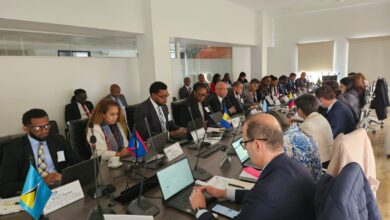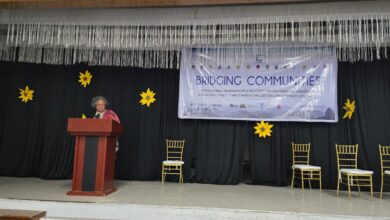Chairperson, Colleague Ministers of CARICOM, Secretary-General and staff of CARICOM, Delegates Ladies and Gentlemen.
It is clear, the world over, that Information and Communication Technology (ICT) has become pivotal to social and economic development. In fact, it is expected that in the 21stCentury, far more new jobs will be created in the ICT sector than in agriculture, mining and manufacturing. But ICT not only allows for creation of new ICT based jobs, it also allows us the opportunity to more efficiently produce and market our traditional products and exports, be they of an agricultural, mining, manufacturing or service nature. We accept too that ICT is transforming numerous other areas of activity that are important to all of our countries – financial services, international trade, education, healthcare, entertainment and public sector services. ICT provide great new tools the application of which must be considered in all our activities.
Increasingly, what determines a country’s advantages are the availability of ICT to all. Countries and their citizens that do not have access to advanced ICTs are likely to fall behind in the race for global competitiveness.
Therefore, every country concerned with the future quality of life and employment of its citizens is in some way re-examining its telecommunications policy and is engaged in formulating its ICT policy so that its people could have opportunity to take advantage of recently emerged and emerging capabilities.
We, in the Caribbean Region are all too well aware of these facts. Consistent with the experiences of most other countries over the past decade, Guyana and her sister CARICOM States have found the need to reform our telecom and ICT policies to create an environment that fosters, supports and gives effect to the growth of these sectors. In this regard, we are cognizant that we need to embrace the basic principles of an open competitive sector tampered with arrangements for universal access, transparency, fair competition, equity, full participation of all stakeholders and creation of the appropriate legal and regulatory framework.
It is widely represented that in order to effectively implement ICT policies and to reap the greatest advantages of ICT applications the starting point must necessarily be a liberalized telecom sector which provides maximum possibility for initiative, innovation, adaptation and experimentation – the key factor being universal connectivity at the lowest possible prices.
For most of us, reform of our telecommunication sectors is well under way. We are in various stages of moving from a traditional single Government operator – the telecom monopoly – to a competitive regime. In doing so the preferred option has been to approach reform in the least confrontational manner, prefering negotiations with incumbents rather than litigation.
Whilst we are fully cognizant of the advantages of ICT application for our countries, for many of us in the Region, implementation of our policies once they are developed will not be easy. In a time of scarce resources, it is somewhat tempting to focus on the more urgent issues than on ICT application. But in today’s world, where many of us face the need to foster economic diversification, ICT application could well be listed as a national priority. In this regard, the efforts of donor agencies in support of ICT development in many of our countries are well acknowledged.
Over the past 30 years, we as a Community, have sought to hone our best strategies for success – at economic and social integration, the establishment of the CARICOM Single Market and Economy (CSME), the establishment of the Caribbean Court of Justice (CCJ), the battle against HIV/AIDS and crime and poverty reduction.
Guyana welcomes the development of a Community effort at the integration and harmonization in yet another aspect, the Connectivity Agenda.
Given the objectives of the CSME, and the multi-sectoral and multi-disciplinary nature of ICT application, it is most appropriate that a coordinated CARICOM connectivity agenda and platform for action be developed. This will provide an opportunity for us to approach ICT policy development and implementation is a somewhat integrated manner.
As we move to fine tune CARICOM’s frame work approach to ICT policy development, we may look to take this opportunity to indicate particular activities in which Secretariat assistance may particularly foster a unified approach to ICT policy implementation the area of e-commerce is one that comes to mind. However, I leave these matters for discussion at our meeting with our objective being to hasten our integration into the new cyber world.
I have no doubt that collaboration at the CARICOM level in the area of ICT, will ensure to the benefit of every individual Member State.
It is therefore indeed a pleasure, at this time of both great challenge and opportunity, to welcome you to this Second special meeting of CARICOM Ministers responsible for Information and Communication Technologies.
May our deliberations be fruitful.
I thank you.





